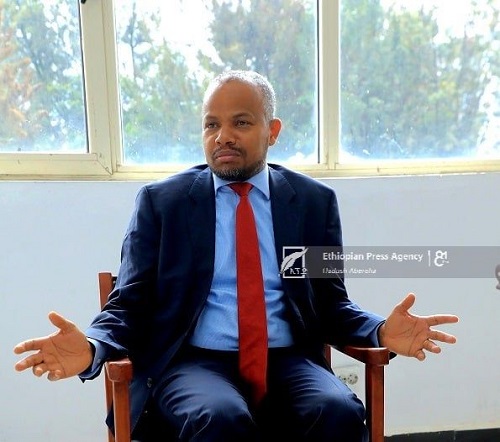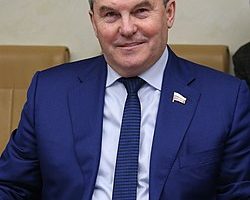
BY GIRMACHEW GASHAW
Today’s guest, Lemma Desta was born and brought up in the southern part of Ethiopia. About 19 years ago, he traveled abroad and started work there as well. He studied both theology and educational advocacy.
And currently he is working as theologian, migration advisor and community development advocate in Norway and Europe where he lives together with his family just outside of Oslo.
As an Ethiopian he is very much closer to what is going on in Ethiopia. Once in a while when he gets time, he tries to contribute some informative and thoughtful articles to The Ethiopian Herald. Recently he came to Ethiopia for a vacation.
The Ethiopian Herald made a brief stay with him centering on Diaspora affairs, national dialogue and issues related to conflict resolution. Have a nice read!
Before we go to our questions, we thank you in advance for your willingness to make this interview possible on behalf of our esteemed audience.
As you well know, there was a disinformation campaign launched against Ethiopia which was wide and you were just struggling there. How do you see the participation of the Ethiopian community and their response?
Unfortunately, although Ethiopia is undergoing promising transformation, it is also facing daunting challenges both from inside and outside. Over the last three or four years, Ethiopia’s political reform opened up the political space with immense potential of leading Ethiopia into a better trajectory.
The whole world was applauding to the effort. I remember in 2019, when our prime minister arrived in Oslo to receive the Nobel Peace Prize, it was such a joyous celebration. The whole world was applauding something good coming from Ethiopia as Ethiopia and Eritrea peacefully resolved their differences and agreed to end war.
That was a very promising start. However, in the midst of COVID i.e. in 2020, war started in Tigray. When the conflict started, the whole global media reported it unfairly. The reporting was marked by prejudice, misrepresentation, heavy orchestration of negative news about Ethiopia without paying due attention to the complexities and context of the conflict.
So, we, Ethiopians in the Diaspora, were very much shocked by the media misrepresentation that came out from the big media such as Reuters, the AFP, BBC, CNN and you name it. All of them were not paying attention to the details, realities or the claims of both sides. It was not right that they failed to give equal space for both sides of the conflict. Instead they reported unfairly intending to justify the act of treason against the Ethiopian state and people.
So, we, Ethiopians in the diaspora started to mobilize using all that was in our hands. We organized ourselves, launched campaigns, prearranged demonstrations, made big gatherings, brought to the attention of the general public in our respective countries of residence that the cause of Ethiopia was a just cause. We made a plea that the interested public as well as policy-makers in those parts of the world should not blindly buy media claims, rather they should strive to find the truth. So that is what we did.
Beyond all our differences and divisions, we stood together and campaigned for the interest of our country. We defend GERD as our dam. Ethiopia has a just cause when it comes to GERD as well. It was not only the war in the north, but also GERD was grossly misrepresented. We fought a fierce battle defending the rights of Ethiopia.
You mentioned that there had been optimism that something better was coming from Ethiopia, particularly when Prime Minister Abiy received an award. But how this turns out to be a negative issue that mounts pressure against his government?
We observe that the negative pressure on Ethiopia was exerted as all these countries, even Norway and the Nordic countries, bought the narrative of one side of the conflict. If they had been fair and had taken note of both sides of the conflict, they could have clearly understood that the federal government had a country to save from the regional leaders of Tigray.
Neither the Norwegian Nobel Committee nor the Norwegian government should have taken part in meddling in our internal affairs. Right from the outset, when the conflict started, when the Northern Command was hit in the middle of the night and its members brutally murdered, none of these countries including the United Nations, which Ethiopia has contributed enormously, took time to condemn the aggression against the sovereignty of the nation and condemn the aggression against the National Defense Forces.
This was unheard of. We were so shocked that especially western countries went out to call Ethiopia should cease hostilities. So we were so surprised that the international community was not willing to see the matter from both sides.
Do you think the looted money of Ethiopia by TPLF played a role in manipulating some politicians abroad?
You are right. TPLF over the last 30 years has built up operatives. The network that has been built up is enormous. It was so powerful and they have people in universities, in agencies, and so on. So it would not be surprising that the narrative was skewed unfairly. And Ethiopia was negatively portrayed. ,
And of course, one should also not forget the fact that these countries have their own interests too. Part of the problem was that they had an interest and they serve their interest. Even before the war broke out, what happened was that the years from April 2018, the day Abiy Ahmed was sworn in as a prime minister, to the day when the conflict broke out there have been visits by Western powers.
They paid visits after visits to Ethiopia, what did they do? They came to Addis first, and they traveled to Mekele the day after they tried to broker a deal between Addis and Mekele, but they didn’t succeed as they never had that leverage to the extent that they could change the minds of the leaders of TPLF in Mekelle.
I was told by a Norwegian official that Ethiopia is going to be shaken and to be shattered because TPLF owns all the military materials and the arm power. They told me just before the war broke out. Those people who have visited Mekele had seen it, and knew it. When the war broke out what did they do?
You can see everywhere, and some of them had gone to the extent of producing documents. There is a group of people in Norway that own agencies or organizations, consultancy firms that were working for promoting and develop narratives of the TPLF. We knew them, and we had to oppose and expose them.
It seems quite difficult for the Norwegian community whom to take seriously anymore. The media narrative was there; and your advocacy had been the direct opposite. Yes, that was one of the confusions, one of the disillusionment that people have met, see and experience. They read something in Norwegian media. We come and say, that is not true. We suffered so much in those months, in the run up to the point where the local media began to admit that they were misled. And then it took a year and a half. Yeah, actually, you know. So until they came to that point, we had to bear difficult times. It was confusing. It was disappointing. It was hurtful. We had to be direct in our communication; we started to say to people “don’t believe what you read in Norwegian media about Ethiopia.” I wrote many articles in various outlets to bring to light that what people read in Norwegian media about Ethiopia is not true.
Our struggles were not without challenges to be frank with you. Some of us had been to the extent that we were about to lose our jobs, about to lose our lives there. Because, I mean, some of us were worried about our lives, when we organized the demonstration, some were angry, and they wanted to assault us. So sometimes I had to watch myself, because I was afraid that somebody might come with hate to hurt me and others.
Do you get the right information from the Ethiopian side to make your communication effective?
Honestly, there are obvious constraints in this regard. If you would ask me, there are some things that I still struggle to understand: why did they make these kinds of decisions? There are decisions that do not make sense for me. It’s hard to understand the logic of some of the actions made.
Which decisions are you referring to?
For instance, on the celebration of the Ethiopian Christmas the Ethiopian government came with an announcement some prisoners would be released and a national dialogue and so on. The diaspora was going to lose trust. There was a massive loss of trust at the home government at that moment.
Of course, over the weeks after the government tried to explain itself and was attempting to win back the trust. At the moment, it seems to me that it will take some time to mend and to win the trust back to the level it was, especially the diaspora advocacy momentum with the hashtag #NoMore was so powerful. It was just ringing like big global phenomena. It was such a powerful movement.
Suddenly, the Ethiopia government somehow made a decision that took the air out of the balloon in a way. So the Diaspora had expectations that the Ethiopian government should be consequential, reasonable, logical, understandable. Because when you dance, you have to make it with your partner and you have to know the movements and what the other person is thinking.
As a diaspora community and the Ethiopian government are working in partnership to defend the cause of Ethiopia. If our communication is not going in harmony, there comes a problem. So, the Ethiopian government in my opinion, the reform administration, the Prosperity Party should always be careful on how to make others understand them.
Do you suppose every details has to be made known?
I am not saying that it should give everything; there is no way that the government could give out national security information to anyone in the public. But whatever decision is made, it must be logical, reasonable and have a very plausible explanation.
But I do hope that the decision that has been made with good intentions will bring the truth that will win the trust back. That is my hope but Ethiopians abroad are very much passionate about their country.
Do you think the aspired National dialogue would produce success?
In my opinion, national dialogue is very much needed. I do hope that every stakeholder is expected to be involved in the national dialogue will get the opportunity to do so. We look at it in a constructive way not as a way to power, not as an avenue to power. I do also believe that national dialogue should focus on bringing consensus and understanding between us before solving problems. If its target is to solve problems, Ethiopian problems are complex and it takes generations.
I don’t like this simplistic way when the national dialogue ends, everything will be solved. No way. Our dialogue will continue all the time. What we need is some of these basic agreements, consensus, let us agree to discuss point one. Let us agree not to use weapons, point two. Let us agree to involve everyone one, point three. Let us agree to listen to everyone and to each other.
In that way, I am still positive and hopeful that national dialogue will succeed in bringing some fruit but it will not solve all problems. It will address some issues. That is my expectation. And I do hope that the Diaspora voices will be included in that dialogue.
How will it be possible?
That is where the Commission should really make efforts because Ethiopian Diaspora is an important stakeholder that we have to reckon with. You cannot ignore the diaspora politically because we have accumulated a knowledge-base, finance, diplomatic relations, network and experience as a constructive political capital.
The government of Ethiopia needs ways to exploit positively or to make most out of the Diaspora power so that the diaspora will not be a negative power. In order to do that, the national dialogue should purposely make an effort to at least organize some things, organize events, and propose hearings. I am still waiting, how the national dialogue commission is planning to execute its goals.
In my article I proposed that national dialogue should focus on creating consensus to end ethnic and religious identity as a means for political mobilization and organisation in Ethiopia. For me, the most important agenda for today is how to divorce politics from religion and ethnicity. In the past, we had restaurants, service places based on religion. And now banks are becoming based on ethnicity. Schools are becoming based on ethnicity and religion. These are things that the entire world forbids.
You cannot have things based on one group because it by default discriminates.
My hope is that national dialogue will bring an agreement between all political forces. We agree not to use ethnicity, not to use violence, no matter whether we lose, we agree not to use violence. For me, if they achieve those two goals by far it is the best starting point.
What do you comment on some elements that opts for armed struggle while Ethiopia is preparing for a national dialogue?
National dialogue will succeed, no matter how many other groups live in Ethiopia. Why? It is the people of Ethiopia that will make the national dialogue. We are not going to give the armed group the upper hand to force us to behave as they want to behave. Denying the armed groups participation in a national dialogue is the right thing to do until they lay down arms and want to take part. The moment they laid down their arms, they should participate in dialogue too. Do the armed groups have a political goal? Or do they have robbery as a goal? If they have a robbery goal, they are criminals that commit atrocities on civilians for no reason. Everybody should condemn such behavior and acts, those actors must be hunted down to face due power of law. However, if they have a political goal, and they want to shoot their way to power, they must know that we will never allow them to get power through guns. That is the decisive victory Ethiopia achieved when the reform came about. It is not going to be reversed.
Thank you very much.
Thank you for the opportunity.
The Ethiopian Herald July 30/2022





